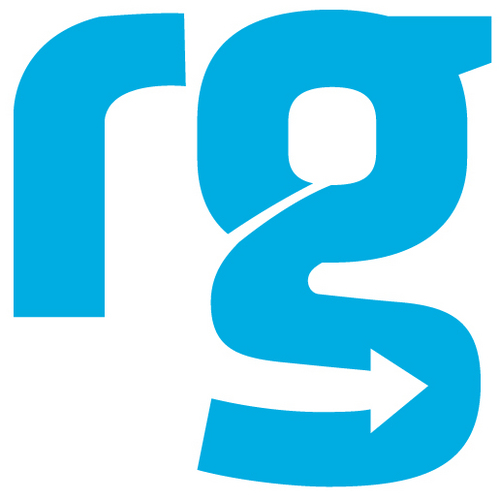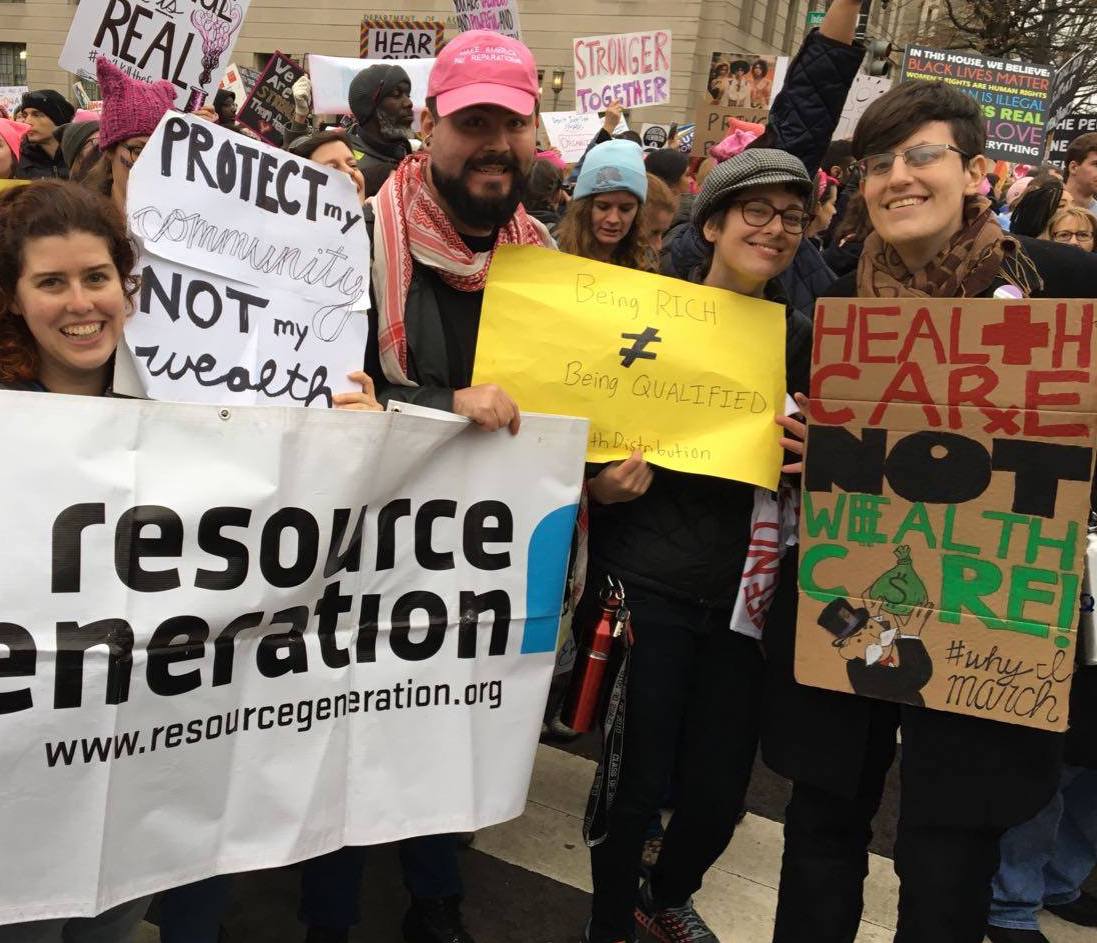 Last year at the 2014 Transformative Leadership Institute, we tried a small experiment that I borrowed from my last job at KFTC. It was called “Each One Reach One” and it was our first official trial of an organized member recruiting members program here at RG. TLI participants greeted the idea with a lot of enthusiasm and it was a fun and great way to gauge where some of our leaders were around building RG power collectively. By the end of the trial, five new members joined and an additional three more joined later on due to an initial ask from one of our leaders.
Last year at the 2014 Transformative Leadership Institute, we tried a small experiment that I borrowed from my last job at KFTC. It was called “Each One Reach One” and it was our first official trial of an organized member recruiting members program here at RG. TLI participants greeted the idea with a lot of enthusiasm and it was a fun and great way to gauge where some of our leaders were around building RG power collectively. By the end of the trial, five new members joined and an additional three more joined later on due to an initial ask from one of our leaders.
Why was this project important? Building a dues-paying base of members who fund their own organization is a measure of our power, investment, and commitment to this work. Our movement is built on what each of us can give in time and resources. It’s not a new strategy. As RG’s Program Director Sarah Abbott once said, it’s an age-old strategy cultivated and used by many other leaders before us who have laid the groundwork for this work to happen. At RG, we are really blessed to have a robust and committed membership base and it’s made a lot of phenomenal work possible. However, we have some pretty ambitious goals and to reach them, we’ll need to grow.
Since the Each One Reach One campaign, the staff here at RG have worked to weave language around membership into all of our areas of work . We had some great member leaders reach out and recruit friends and family during the fall campaign and we are seeing our numbers exceed previous years. We exceeded our goal of recruiting 50 new members before the end of the year. Right now we have 332 members and we are on track to growing to 600 strong by 2020.
Two RGers that really dug into base-building and membership recruitment this fall were our Family Philanthropy organizer Iris Brilliant and Western Massachusetts chapter leader Adam Roberts. I caught up with them to ask a few question on their work.
Why is membership important to you?
Iris:
I love that RG is 87% community funded because it gives us the freedom to pursue more radical programming, pushes members to fund grassroots fundraising, shows that our members stand behind our organization, and shows a sense of belonging. If folks didn’t support us, we’d be failing at our jobs.
It’s also an important way to train people to become donors. We want people to become great donors for a lot of different organizations. It brought me closer to people to recruit them, learn about their finances, learn about their giving, and tell them about my giving.
It’s more than just asking about money, it was sharing our stories and supporting one another. That felt really cool.
Adam:
Membership recruitment is important to me because we’re a member-based, member-led organization! Having active members whose leadership development we are investing in increases the capacity of the organization. Having more dues-paying members increases the capacity of the organization.
I couldn’t show up fully until I had RG as a real place and family to process all this. Membership recruitment — or “base-building” — is important because it’s how we build that family and keep it active. It really feels like the core, to me, of what we do — building transformative relationships. Institutional change might be possible without relationships, but systemic change (movements) …. maybe not so much.
If we see RG’s role within larger movements for social justice, then all this base-building work is movement building work, too: we’re increasing the capacity of young people with wealth and class privilege to show up as our full selves, leverage more resources, & collaborate more effectively with other orgs and networks.
Who did you ask?
Iris:
I asked people with family foundations, family members and friends, Jewish praxis graduates from the group I led, and people I had strong relationships with.
Adam:
I wanted to answer this by thinking about a specific kind of ask: asking people who are already involved with RG to step into more leadership. What would leadership within RG look like, for them? Kaitlin Gravitt, one of our national chapter organizers, said something that has stuck with me — I think I was talking about developing leaders as a means of eventually “rotating out of” leadership — and her response was, “Adam, I hope you continue to step into even deeper leadership.” This was such a beautiful response! Having been a part of previous organizing (or work) environments that felt unsustainable or draining, this was a clear reminder that: a) leadership development and personal growth never stops, and b) there are so many different types of leadership and ways to exercise it. In inviting people into “deeper” leadership within RG, we’re really asking, “in what ways can we support your leadership? How do you see yourself continuing to grow as a member of RG?”
For others who want to recruit members: just jump in! Start doing 1-1s, share your own story and be bold with it, and don’t be afraid of making “direct” asks — the kinds that come out of (and help deepen) genuine relationships.
STEPS TO EFFECTIVE MEMBER RECRUITMENT + LEADERSHIP DEVELOPMENT
1) Build relationships.
2) Ask.
3) Listen to where they’re at (let go)
4) Assess.
5) Support them in taking next steps (follow up)
6) Return to step #1 🙂
What is your advice for others that want to recruit members?
Iris:
If you are a young person with wealth, make sure you feel good about your own giving and your giving plan is in order and making sure it’s bold, and model with your story. If I asked with guilt and hang ups myself my asks wouldn’t have been as good.
One of my asks asked me how much I was giving. It informed their giving.
See yourself as a role model, the more boldly you’re giving, and the more thought you put into your giving plan, the more you can walk people through the process.
Focus on people’s humanity, and decide to be proud of the person regardless of what they decide, be bold and don’t give up on people! Put the relationship over the ask. Remember that you’re talking to a person. We are trying to train folks to be good donors. Don’t objectify people. We have fear of relationships because many come with an agenda. Connect authentically.
Adam:
This is what it means to be a leadership development organization. Asking people to take on more leadership is part of a bigger conversation around where people are at, what they’re thinking about, what else is going on in their life, what they want to get out of RG, what they want to give back and how they see themselves contributing, etc. Making ‘the ask’ in itself deepens and builds relationships.
[Side note: as someone who was socialized as an upper-middle-class, liberal-minded/sensitive white guy, I was socialized to be both conflict avoidant and in control — i.e. to control the outcome without any direct confrontation. Making an ask (of a prospective RG member or leader) can bring up this conditioning in me: I want to avoid the ask, or I want to make sure the ask goes perfectly and I get the answer I’m attached to, or I want to protect the other person’s schedule and feelings and not ask them to take on any more commitments or in any way make them uncomfortable. But trusting folks to make their own assessment, for them, and giving them the space to process and respond, feels MUCH BETTER, as a practice. Do you want to become a dues-paying member? Do you want to join the leadership team? Etc. ]
To learn more about RG’s membership program contact [email protected]


